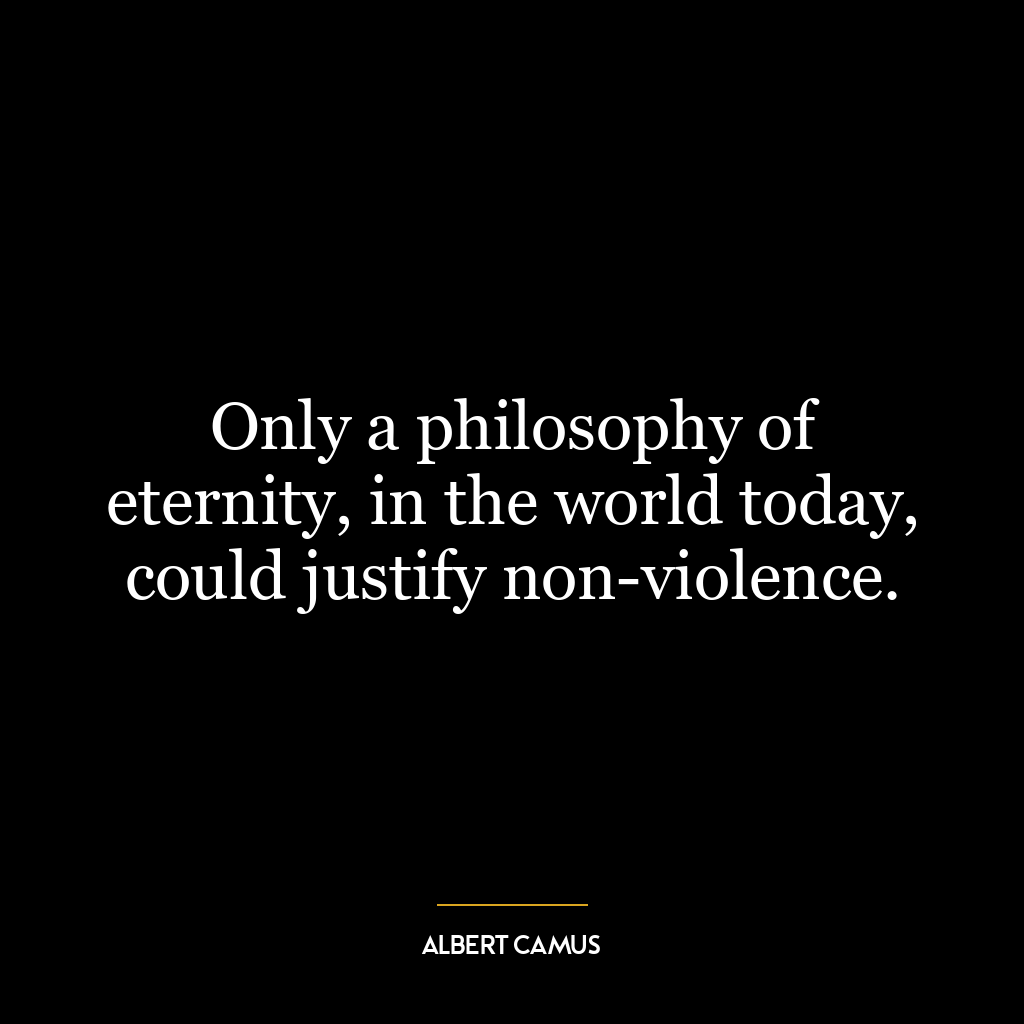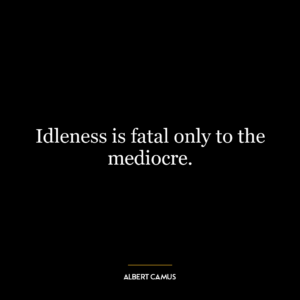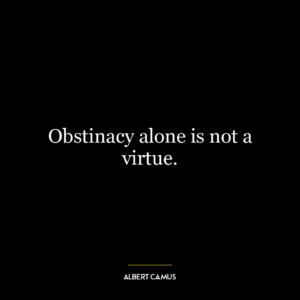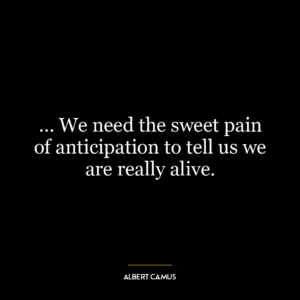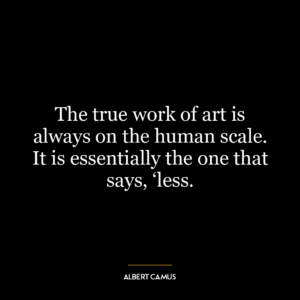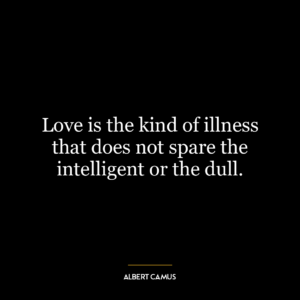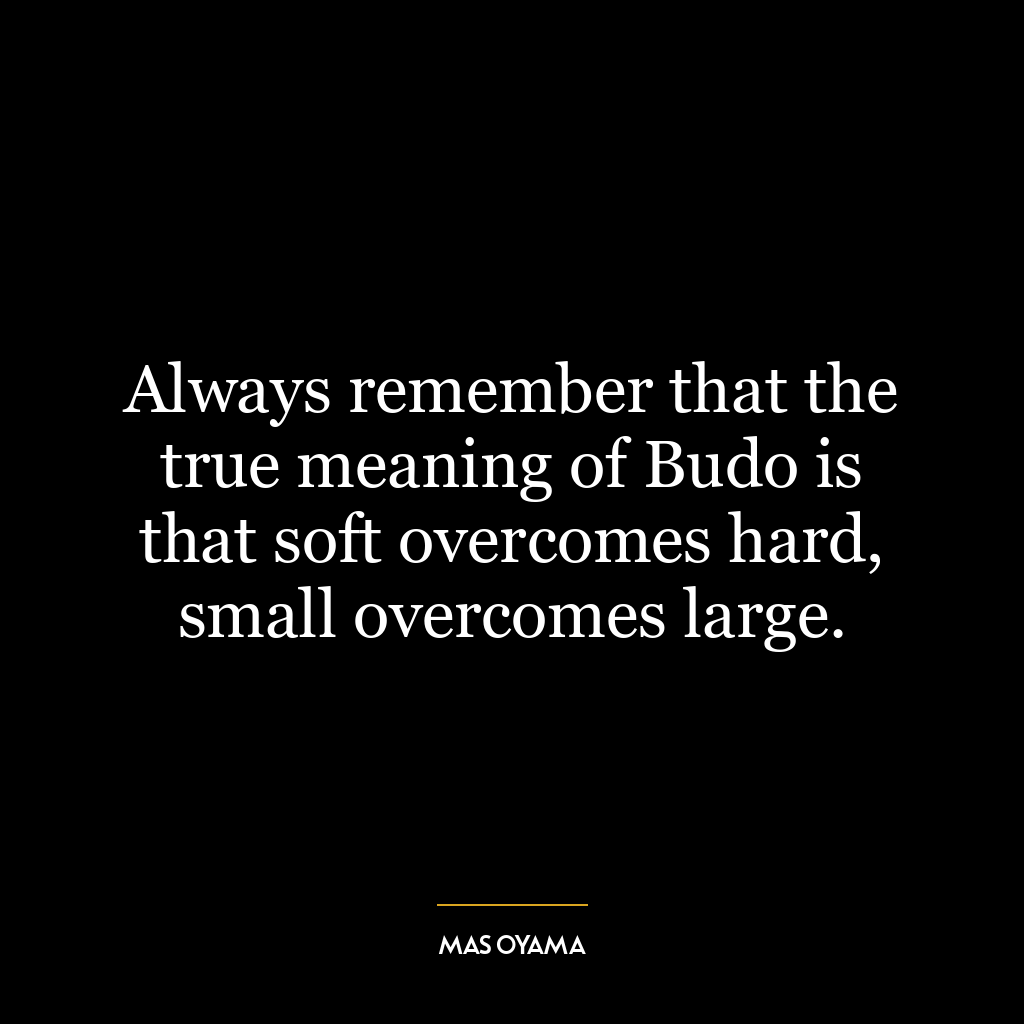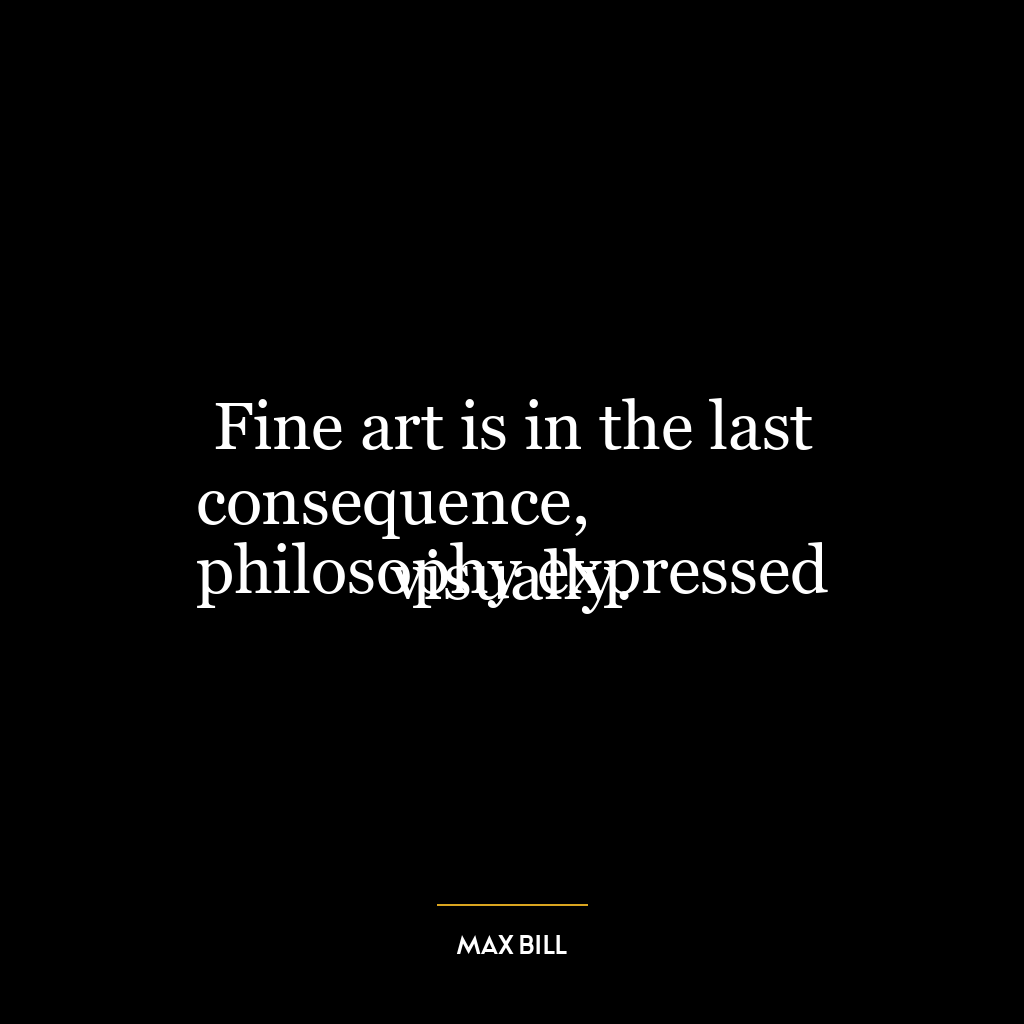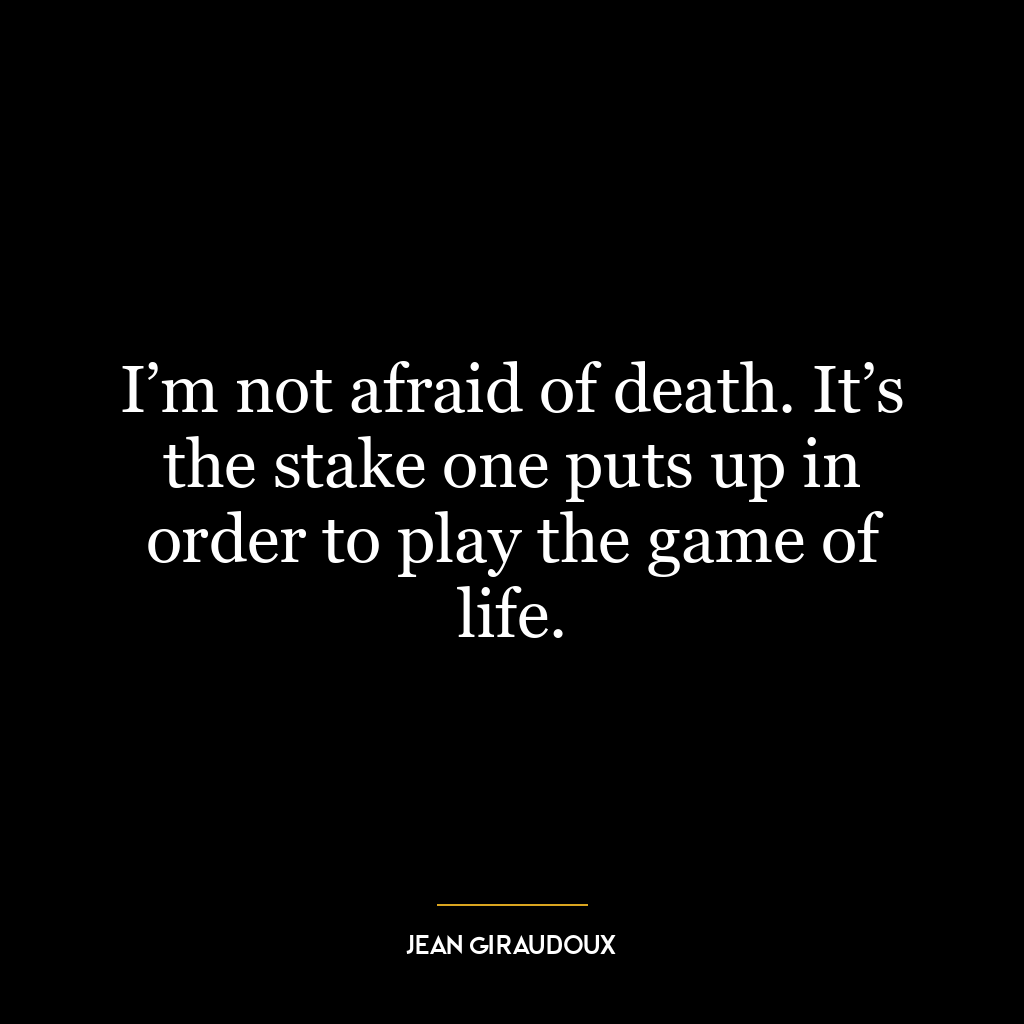Only a philosophy of eternity, in the world today, could justify non-violence.
This quote suggests that it is only through a perspective that values and considers the infinite and eternal that non-violence can be justified. This philosophy of eternity is one that transcends our immediate circumstances and physical existence, and instead, focuses on the lasting and enduring aspects of life, such as the human spirit, morality, and the legacy we leave behind.
When we adopt this perspective, we can see that violence, in any form, is short-sighted and temporary. It may bring immediate results or gratification, but it doesn’t contribute to the long-term wellbeing and progress of humanity. Instead, it breeds more violence, pain, and suffering. On the other hand, non-violence, though it may seem ineffective or slow in the immediate term, contributes to a more peaceful, harmonious, and sustainable world in the long run.
In the context of today’s world, this philosophy could be applied in various ways. On a global scale, it could mean choosing diplomacy over war, negotiation over conflict, and understanding over retaliation. On a societal level, it could mean promoting tolerance, inclusivity, and understanding to overcome division, discrimination, and hate. On a personal level, it could mean choosing to respond to anger with patience, to insult with kindness, and to hurt with forgiveness.
In terms of personal development, this philosophy encourages us to cultivate qualities such as patience, understanding, forgiveness, and compassion. It pushes us to look beyond our immediate reactions and emotions, and consider the long-term consequences of our actions. It also helps us to recognize that our actions and choices not only impact us and those immediately around us, but also contribute to the larger narrative of humanity. Thus, it inspires us to strive for growth, maturity, and wisdom, and to make choices that align with these values.

